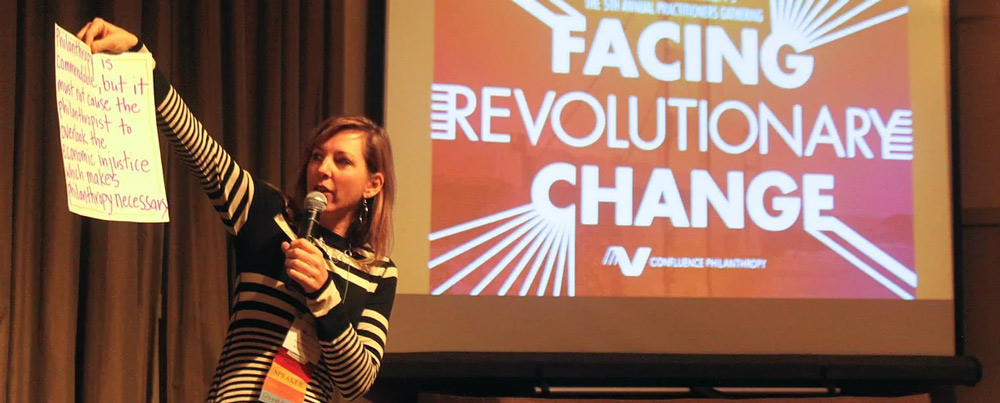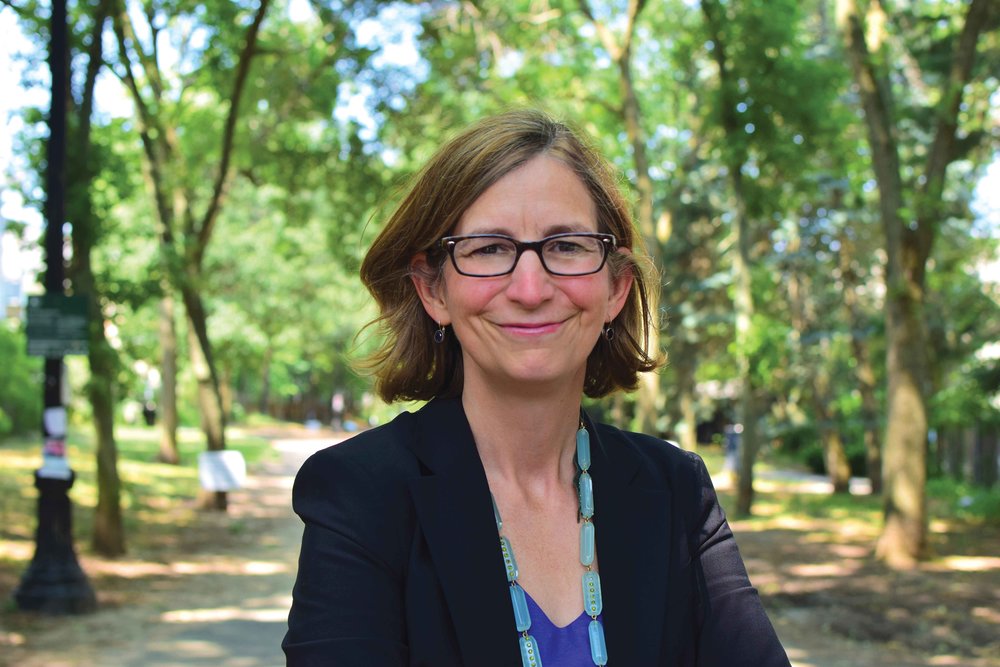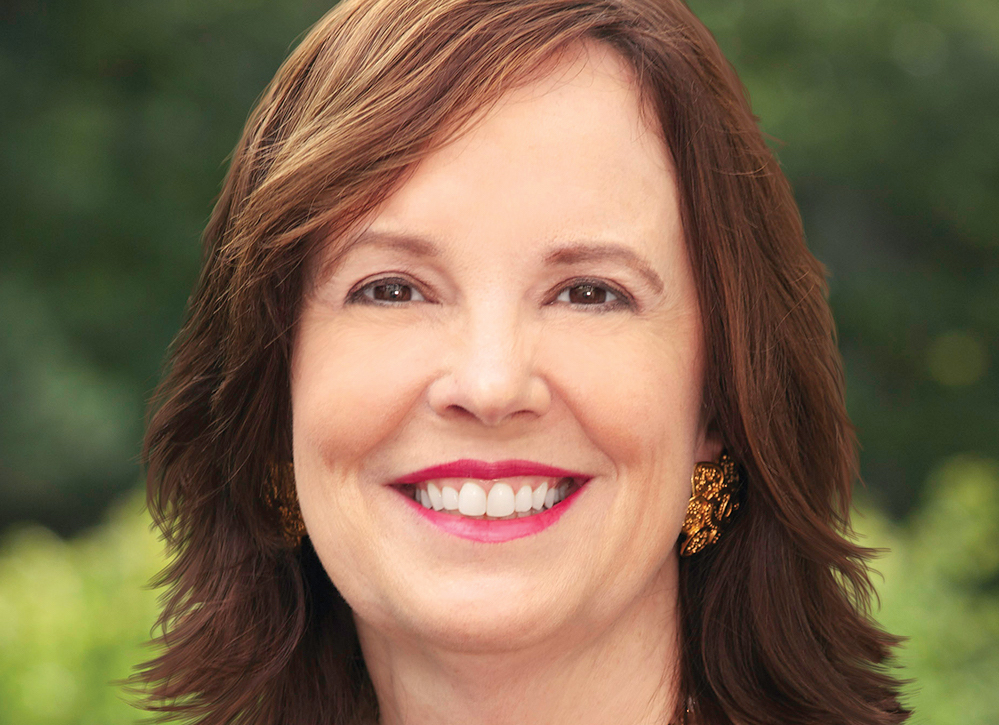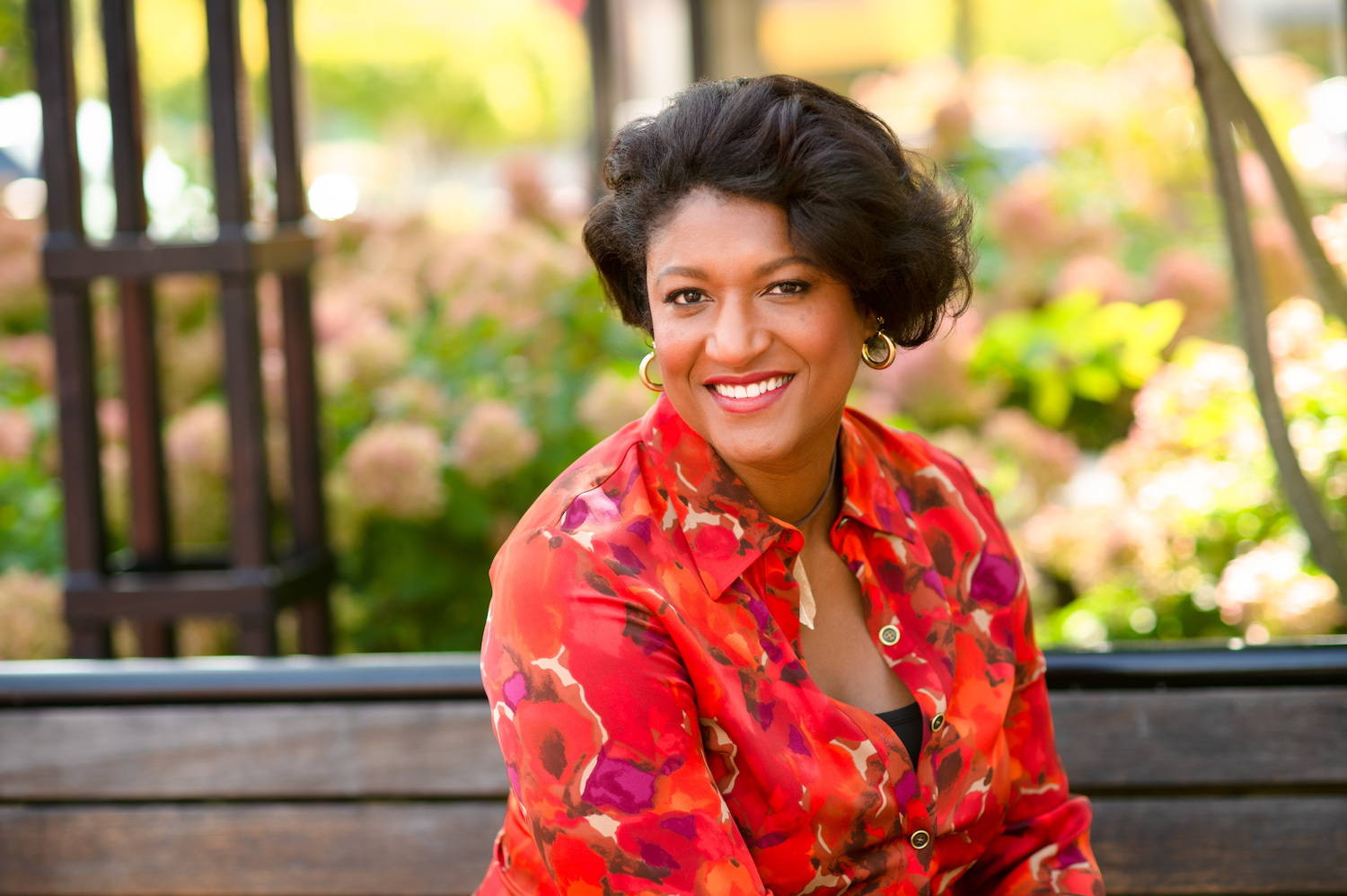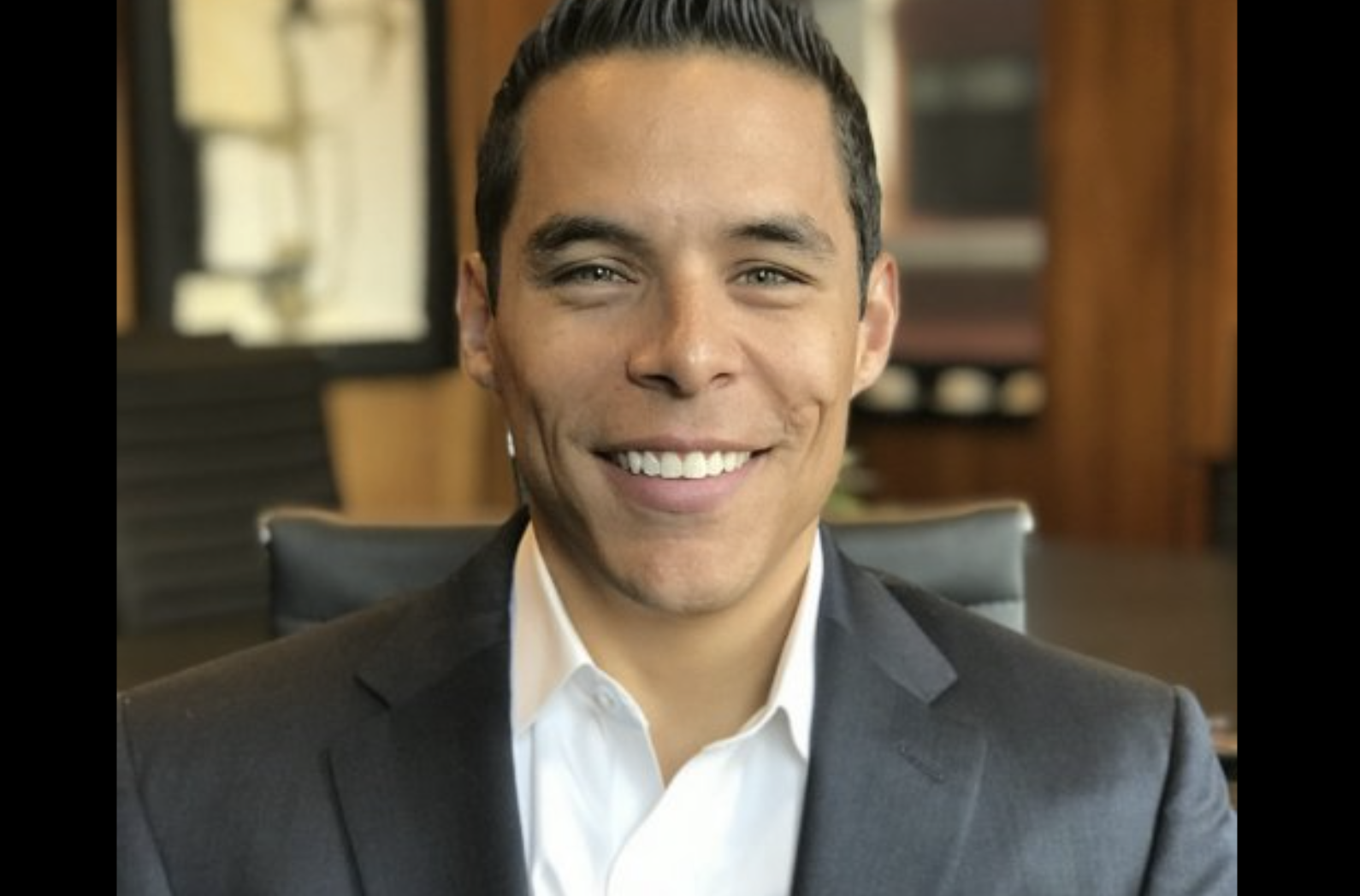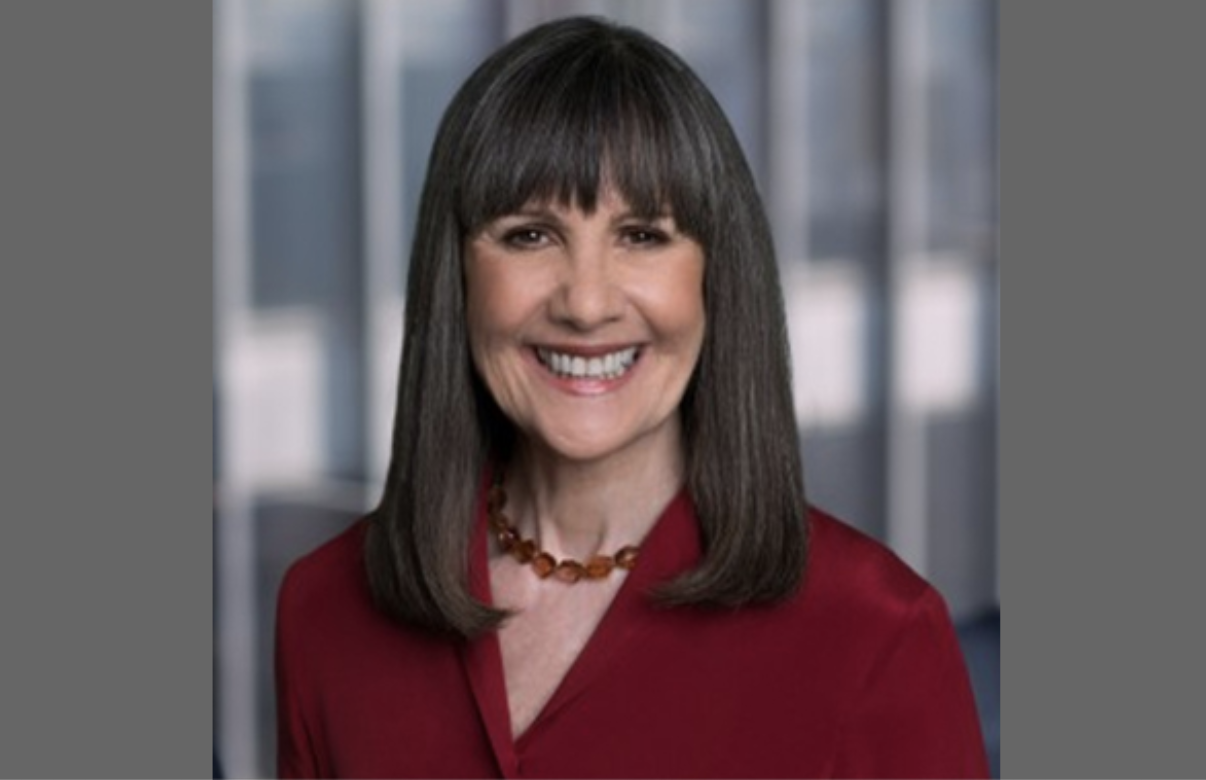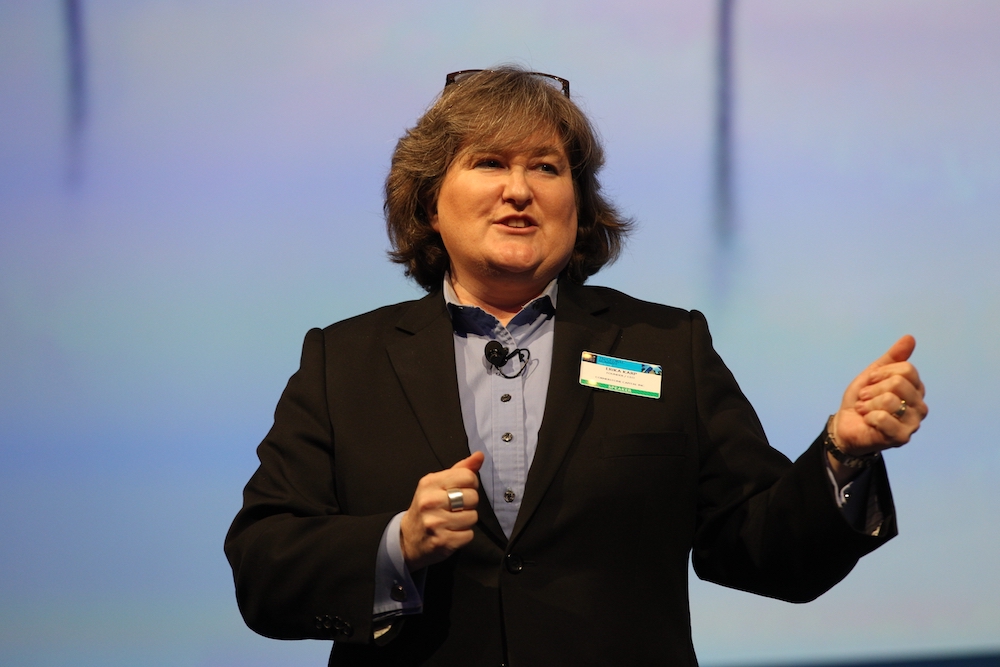I grew up without money, and so earning a living—rather than investing—was a primary pursuit for me.
While I recall my parents arguing over who would pick up the food stamps, both were very entrepreneurial and scrappy. They worked several jobs—from serving as the maintenance person at apartment buildings, to grading English papers, to selling cleaning supplies as a door-to-door Fuller brush man. Hard work to make ends meet was a learned and lived value.
I ended up with an early start in the finance industry when my dad started a trading firm out of our garage—as one does in California. From the back seat of the station wagon, I grew up talking puts and calls, commodities, options, futures, and pork bellies. While immersed in the ever-changing algorithms that would allow us to buy low and sell high—that being the mantra at the dinner table—I learned to harness the financial markets for financial gain. High frequency trading was a way to connect with my father. And, serving on the investment committee was how I learned asset allocation, about (purported) efficiency of markets and what they referred to as “modern” portfolio theory.
Beth Bafford: Making my money work for my kids and their future
While always involved in the trading firm, growing up white in Oakland had me firmly rooted in the racial justice movement in my hometown. I became a bilingual elementary school teacher, and lived a dual life for many years balancing time on the front lines of poorly funded schools, in the board room and as a clerk on the options floor.
It wasn’t until the trading firm was sold that I stumbled across impact investing (there was no specific term for it at the time) at a philanthropy conference back in 2007. For the first time in our lives, we had more than enough. We set up a family foundation. As president and chair of the board, I attended the Global Philanthropy Forum expecting to learn best practices in social justice philanthropy.
Steeped in efficiency theory, I thought I might learn whether it was more effective to grant locally, or whether there might be an advantage or a currency hedge of granting abroad. Instead, I attended a session titled “Two Percent” where esteemed foundation executives debated the possibility of whether or not their foundations could or would commit 2% of their endowments for values-based or mission-aligned investing.
Brand new to even thinking about the endowment as having any effect on the causes that I was working hard to address from the grant side of the portfolio (“the 5%”), a lightbulb went off. I raised my hand from the back of the room to ask, “Why not 100%?”
The discussion was heated, I was brand new to the space and no one called on me. Yet the spark had been ignited and I became a woman on a mission.
Within six months, we had transitioned the entire endowment to being 100% values aligned. We chose seven community banks doing the financial literacy work that we valued, and moved completely out of the public markets.
At the time, I had no idea ours was the first foundation to achieve 100%, and I looked to make even deeper impact. In 2010, I went on to found Nia Community Investments, focused specifically on investing for racial justice in my hometown of Oakland, Calif.
While I was having fun meeting local entrepreneurs solving key problems, directing capital toward innovative solutions, and earning significant returns, I saw that few investors were following suit. In those years, I was still completely out of public markets and investing off Wall Street. I was happy about my cash being in local community banks, and was doing mostly early-stage angel investments, some venture, and writing alternative term sheets for loans to local entrepreneurs. I was seeding ideas that were too early for most investors and engaging with entrepreneurs that many had overlooked. It was an odd time being a female investor with few colleagues to turn to as most investors were still heavily invested in public market index funds.
While my own assets were deeply aligned with my values, not everyone was able to spend the time to create a portfolio of early stage startups. I then saw the need to meet investors where they were—back on Wall Street.
With the assistance of Imprint Capital (now part of Goldman Sachs), I searched for two years to find a public equity option that met my impact criteria. I looked at every firm and every buy list available at the time. What I found had staggeringly high minimum investments, and was still very much tied to markets and benchmarked to indexes, concepts I had abandoned years before.
It occurred to me that I needed to bring the notion of impact investing into public markets. I launched Nia Global Solutions in 2013 as a way to share with others a careful and curated selection of handpicked companies. I continued to invest along my six solution themes, and just as I did on the private side of my investing, I eliminated companies lacking diversity in leadership.
For me, publicly traded companies represent a bit of nostalgia, as taking a company public was the original way to crowdsource a business. And, providing daily liquidity was a quality missing from traditional, earlier stage impact. Of course, there are no perfect companies, and so that is where the activism begins.
Just like on the private side, I seek to meet and be in conversation with every company. And, I was an activist long before I was a portfolio manager. I still find change happens one conversation at a time. So, I keep at it, encouraging companies to strengthen their diversity and inclusion efforts, providing myself and now other investors a concentrated, solution-focused alternative to index investing.
What do my own investments look like now?
I have always sought to invest at the intersection of environmental sustainability and social change. My portfolio reflects that. Since 2007 (when I first learned that transparency was not easy to come by in finance), I have carried around a printout or handout of all my investments as a way to share what I am up to, for anyone interested. That list is also always posted to the Nia Community site. Some highlights from that list:
Women in Agriculture Initiative. In 2008, while serving as president and chair of the family foundation, our investment team looked into making an agricultural loan investment through Root Capital. In the due diligence process, the question was asked: what percentage of the loans would go to women-run businesses? By asking this question, I learned that raising my investor voice mattered and served as a key lever to create change. By asking for what we wanted, we alerted the organization to the possibility of adding a gender lens to the way they engaged in their work.
During the time the staff at Root Capital spent calculating the number of women-led business ventures in their portfolio, our investment team decided we wanted to direct all our investment dollars toward women-run agriculture ventures. In collaboration with Root Capital, we seeded a new investment product which was then made available for other investors as a high-impact, fixed-income offering. I am still an investor 12 years later.
Impact Hubs. I was a founding investor in the first Impact Hubs in the U.S. From Berkeley to Soma, to co-founding the Oakland Hub. I have been highly involved and invested from the beginning. I used both convertible debt as well as private equity to seed the first co-working and event spaces.
The Hub spaces were a fabulous way to nurture and grow our impact investing community. Our Nia offices have been located at the Oakland Hub. And yet, in the high-rent Bay Area, the business models struggled. And, now with COVID-19, co-working may be a thing of the past. Positive impact-wise, these investments have had hockey stick returns, and yet dollar-wise, I anticipate there will be some writeoffs happening soon.
Kubé Nice Cream was founded by Kai Nortey (seed investment private equity). I met Kai at a Social Venture Circle conference and was intrigued by her as a person, as well as by her innovative product. Kubé is an artisan, raw, plant-based, hand-crafted, coconut cream “nice cream” based in Oakland, Calif.
Kubé founders believe that real, fresh, and healthy foods, without chemicals, support healthier outcomes for all people and for the earth. Kai Nortey, coming from a lactose-intolerant community uniquely understands their needs. As a woman of color, she is well suited to carry out her business model with sales to a largely lactose-intolerant audience. Kubé is also committed to hiring and training previously incarcerated women in the Bay Area.
This investment and this entrepreneur check all my boxes of aiming for social change in concert with environmental sustainability—not to mention this Nice cream is delicious!
LaborX is also a favorite for the huge need I see her fulfilling. LaborX is a marketplace for hiring talent from non-traditional backgrounds. This platform matches employers with an untapped, skilled, and loyal talent selection. LaborX is the LinkedIn for the previously “LinkedOut,” meaning they work to connect women and people of color with employment opportunities. Yscaira Jimenez is a woman of color of Dominican heritage who uniquely understands the gap in employment opportunities as well as bias in hiring.
Impact America Fund (IAF) has a mission is to generate financial returns while enhancing the quality of life for underserved communities in the US. IAF, led by Kesha Cash, invests in high-growth companies that are scaling solutions in the Health & Wellness, Education, Essential Services, and Financial Inclusion sectors. IAF is making impact investments in sectors and in communities that need it most. IAF addresses gender, racial and social equity issues by directing capital to the businesses championing progressive and inclusive business practices. Kesha is a rock star, and someone I look up to. Yes, another favorite.
Illumen Capital is a San Francisco Bay Area–based, private equity impact fund of funds, dedicated to working with active fund managers to reduce their investment biases. Managing Director Daryn Dodson founded Illumen to provide a pathway for investors, foundations, and family offices to access the world’s top impact funds and actively reduce bias throughout global financial markets. By partnering with Stanford University, Illumen Capital creates and applies bias-reducing interventions to help venture capital and private equity fund managers unlock latent financial return and impact, and to create a more equitable, empathetic, and prosperous world.
Like many founders of investment firms, a large portion of my own assets are invested in my firm, Nia Impact Capital. Overtime, as we grow, the plan is to have Nia employees take over ownership.
The public equities portion of my portfolio pie are in the Nia Global Solutions portfolio. I also keep some of my public equities in the HIP Best Places to Work portfolio, as I truly understand how important it is to invest with emerging managers, helping innovative ideas to get more broadly adopted.
I keep as much money in my local community as I can, banking at Beneficial and keeping cash alternatives in Cnote (yes, women run companies).
I am fully 100% impact invested and have little liquidity at the moment. As I get more liquidity, every new investment will go toward women of color founders. Since learning the—very much still hard to fathom—numbers, that women and people of color receive approximately 2% of private equity investment and combined they run just 1.3% of publicly traded portfolios, I committed to moving all new investments to women and people of color led ventures. I am on a mission to increase those numbers. I believe people and planet are depending on us moving toward balance in who runs our companies and in turn who runs our economy.
When it comes to entrepreneurs of color as well as women, rather than view the opportunity as “risky” or farfetched, I generally ask myself, “What is the risk of not making this investment?” Knowing few investors are making such early stage commitments, I see those of us that can as having a significant role to play in changing the narrative of just who can be a successful entrepreneur.
Not listed on the Nia Community Investment list are individual loans that I make to women of color in the Bay Area. My sweet spot has always been the intersection of social justice and environmental sustainability. And, when it comes to empowering women of color with their finances that is where I get the most joy. Whether it’s a teacher whose partner has been laid off and they are having trouble making their mortgage payment, or an immigrant woman setting up a business for job training for other immigrant women, I make non-traditional, individual loans and I have the women set the interest rates they feel most comfortable with.
I fully see that our assets are an extension of ourselves, and that our investment dollars do create the world we live in. With that in mind, I will continue to direct my assets away from passive indexes and into actively managed, solutions-focused companies with diverse leadership.
That’s where I have found the most financial returns, as well as the most positive impact, and honestly, delight.
Kristin Hull is founder and CEO of Nia Impact Capital. Thanks to Confluence Philanthropy for sharing Hull’s post.

